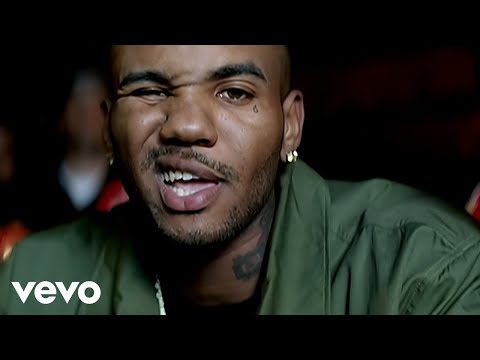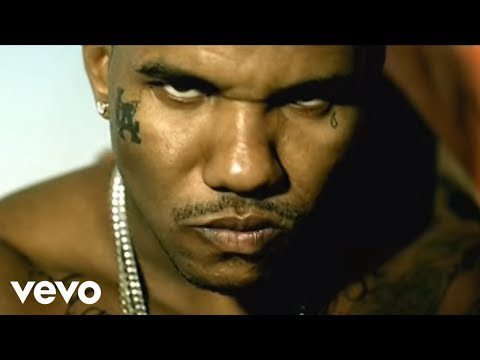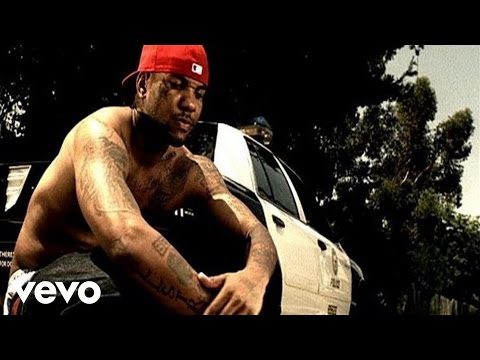
The Game Essential Songs

Few names in hip hop carry the weight of The Game. In the early 2000s, Jayceon Terrell Taylor, better known as The Game, was born and raised in Compton, California. He kicked off his career with a bang by bringing an uncut perspective on street life when he released his first album, The Documentary, in 2005. It shook up the industry because it had tough lyrics matched with high-profile features. This wasn’t just any bunch of songs, though — this work marked not only where he stood within rap but also served notice about what kind of person would make such music: someone who has always shown himself to be strong despite any setbacks or criticisms.
Throughout his musical journey so far, there are many legends that Game has worked alongside. These include none other than Dr Dre, 50 Cent, Lil Wayne & Drake, amongst others. They’re all very big names indeed when it comes down to them being pioneers within their lanes. Meanwhile, Game’s music often tells stories from growing up around violent areas in Compton, where poverty breeds crime. He also hopes for change through hard work and dedication, which is something he has always been passionate about. Each of the five tracks we will delve into represents different sides of Game’s artistry. They show growth and an impact on broader hip-hop culture.
1. “How We Do” (Featuring 50 Cent) (2005)
“How We Do” is a quintessential track from The Game’s debut album, The Documentary, released in 2005. This song, featuring 50 Cent, was a commercial and critical success, firmly establishing The Game in hip hop. Produced by Dr. Dre and Mike Elizondo, the track’s infectious beat and memorable hook made it an instant hit. “How We Do” climbed the Billboard Hot 100 charts, peaking at No. 4. It also became a staple in clubs and radio stations nationwide.
The collaboration with 50 Cent was significant, highlighting the chemistry between the two artists. Their back-and-forth verses provided a dynamic energy that resonated with fans. The track’s success was instrumental in boosting The Documentary to multi-platinum status, cementing The Game’s position as a major player in hip hop. “How We Do” remains one of The Game’s most iconic tracks.
2. “Hate It Or Love It” (Featuring 50 Cent) (2005)

“Hate It or Love It,” also from The Documentary, is another monumental track in The Game’s career. This one also featured a collaboration with 50 Cent. Released in 2005, this single became one of the defining songs of mid-2000s hip hop. The song’s soulful production, produced by Cool & Dre struck a chord with a wide audience. The track peaked at No. 2 on the Billboard Hot 100 and received two Grammy nominations, underlining its critical and commercial success.
Further, the chemistry between The Game and 50 Cent on “Hate It or Love It” is undeniable. Both artists reflected on their rise from hardship to success. The lyrics explore themes of perseverance and overcoming obstacles, resounding with fans who relate to their struggles. “Hate It or Love It” is pivotal in The Game’s career, reinforcing his place in hip-hop and his ability to produce timeless hits.
3. “One Blood” (Featuring Junior Reid) (2006)

In 2006, “One Blood” was released as the lead single from Doctor’s Advocate, The Game’s second album. This is an important moment in his career. When he left G-Unit with 50 Cent, it was necessary for The Game to show he could do well on his own, and this track did exactly that. Further, the song’s chorus features Junior Reid’s sample from his classic “One Blood.” With its hard-hitting production, the song reflects The Games’ style, making this track unforgettable. Moreover, the success achieved by “One Blood” clearly indicated how strong and self-sustaining The Game really is. It took No. 71 on the Billboard Hot 100 chart, but still, its performance on the streets where fans rule was amazing. On top of everything else, it changed people’s minds about blending West Coast rap and reggae.
4. “My Life” (Featuring Lil Wayne) (2008)

“My Life” is the title of a song in LAX, The Game’s third studio album, which dropped in 2008. The rapper delves into his personal battles with depression and fame on this haunting track featuring Lil Wayne. It’s got a chilling hook from Weezy combined with The Game’s hard-hitting bars that tell an intense story. The beat, produced by Cool & Dre, is melancholic, perfectly matching the lyrics, making it one of the most emotional songs by The Game.
People loved “My Life” for its honesty and depth, and critics praised it, too. On the Billboard Hot 100, it peaked at No. 23, proving that even heavy-themed songs can still be commercially successful. The collaboration with Lil Wayne added a significant layer of depth, as both artists shared their experiences with life’s hardships, making the song relatable and moving. “My Life” highlighted The Game’s ability to address serious subjects in his music, solidifying his reputation as a multifaceted artist with a profound impact on hip-hop.
5. “100” (Featuring Drake) (2015)

As for “100,” released in 2015, it is a key track from The Game’s album The Documentary 2. This song features a notable collaboration with Drake, combining The Game’s classic West Coast style with Drake’s contemporary, mainstream sound. The production by Cardo and Johnny Juliano delivers a California vibe that allows both artists to shine. The lyrics revolve around authenticity and staying true to oneself in an industry often filled with pretenders and opportunists.
The song received critical acclaim and enjoyed commercial success, peaking at No. 82 on the Billboard Hot 100. Further, “100” stands out for its production and seamless collaboration between the two rappers. Their verses complement each other well, creating a track that resonates with fans of both artists. This song underscores The Game’s versatility and ability to remain relevant by collaborating with diverse artists. Overall, “100” is a testament to The Game’s enduring influence and adaptability in the hip-hop scene, ensuring his continued presence and impact on the genre.

